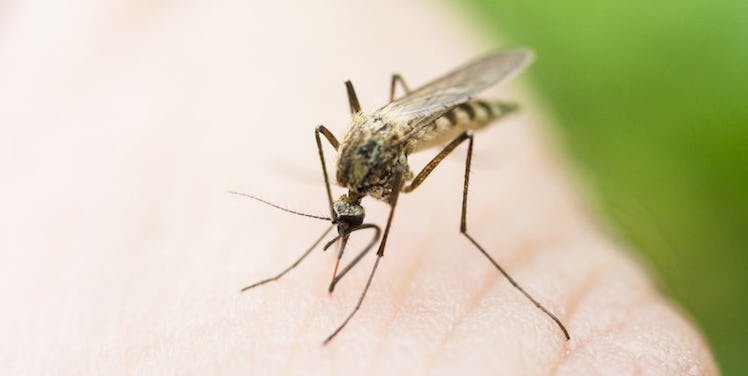News

These Tweets Perfectly Break Down What's Going On With The Zika Virus
by John Haltiwanger
Getty Images
On Monday, the World Health Organization declared the Zika virus outbreak has reached the status of an international public health emergency.
BREAKING: World Health Organization declares Zika virus outbreak an international public health emergency. - @WHO — Elite Daily (@EliteDaily) February 1, 2016
There's definitely cause for concern here, but in some ways it's a good thing the WHO made this declaration, as it means more money, time and resources will be dedicated to addressing and researching the threat the Zika virus poses.
If you're wondering what the Zika virus is, how it impacts you and how to keep to yourself safe, the WHO, among others, is doing a great job tweeting out helpful info.
Here are 11 tweets that will help you make sense of the Zika virus and offer info on what to do moving forward.
The current Zika virus outbreak was sourced back to Brazil, but it spread across the Americas.
#Zika: - 25 countries affected (Americas + Cape Verde) - 4,000 suspect microcephaly cases in Brazil, 270 confirmed pic.twitter.com/CflTkb6juq — reported.ly (@reportedly) February 1, 2016
Zika is a mosquito-borne virus, spread by mosquitoes of the Aedes genus.
Q: What is #Zika? A: https://t.co/3Fq6lJSQpz#ZikaVirus pic.twitter.com/3cUlnQgloR — WHO (@WHO) January 29, 2016
There is currently no vaccine or treatment, but symptoms are mild and usually last around a week.
6 key facts you need to know about the #ZikaVirus: pic.twitter.com/cTlg344LSc — Save the Children US (@SavetheChildren) January 29, 2016
The larger concern is Zika is linked to a birth defect known as microcephaly, which results in babies being born with abnormally small heads.
Brazilian dad embracing son who has microcephaly, via @Reuters pic.twitter.com/oAcLp0T0so — Keenan Steiner (@KeenanSteiner) January 28, 2016
The causal relationship between the Zika virus and microcephaly is believed to be strong...
Dr Chan: The experts agreed that a causal relationship between #Zika during pregnancy & #microcephaly is strongly suspected #ZikaVirus — WHO (@WHO) February 1, 2016
...but it's not scientifically proven.
Dr Chan: The causal relationship between #Zika during pregnancy & #microcephaly is not yet scientifically proven #ZikaVirus — WHO (@WHO) February 1, 2016
The WHO is working to find the link.
Dr Heymann: Not known how long it will take to find link between #ZikaVirus and #Microcephaly — WHO (@WHO) February 1, 2016
With that said, pregnant women are the most at-risk population.
Dr Chan: [At present, the most important #Zika protective measures are] the prevention of mosq bites in at-risk indivs, esp pregnant women — WHO (@WHO) February 1, 2016
There are ways, however, for pregnant women to protect themselves from Zika.
Dr Chan: Pregnant women can consider delaying travel to #Zika-affected areas, shld protect themselves w/ safe mosq repellant, long clothing — WHO (@WHO) February 1, 2016
There are cases of the Zika virus in the US as people travel back from affected areas, but no evidence of local transmission.
No local #Zika transmission in continental US. See current travel notices https://t.co/G4BVGWaoZP for latest info. pic.twitter.com/VZHhdQ1dvp — CDC Emergency (@CDCemergency) January 29, 2016
Long story short: Do your best to avoid mosquitoes right now, stay informed and keep an eye out for updates, especially if you're traveling soon.
#Zika virus information for travelers - know before you go: https://t.co/a1UnkmNoXE — Travel - State Dept (@TravelGov) February 1, 2016